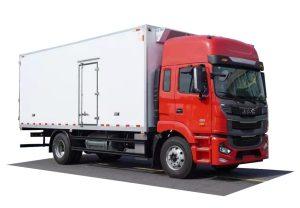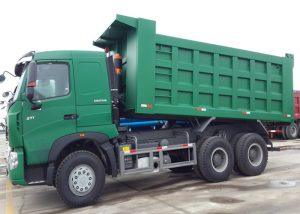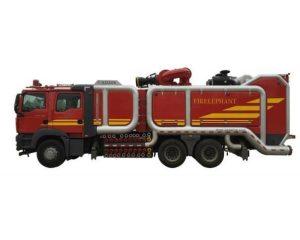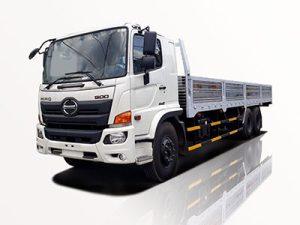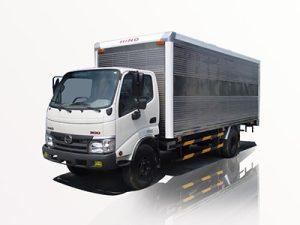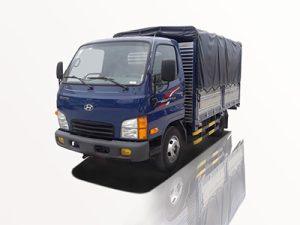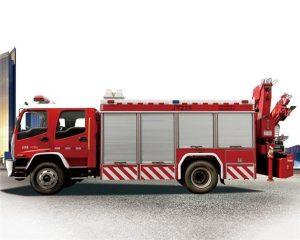Monday to Saturday - 8:00 -17:30
Everything You Need to Know About Trash Can Trucks
Introduction to Trash Can Trucks
Trash can trucks, also known as garbage trucks or refuse collection vehicles, are large specialized vehicles designed for the efficient collection and transportation of waste. These trucks play a crucial role in maintaining cleanliness and sanitation in our neighborhoods and cities. This article explores the various types of trash can trucks, their features, benefits, and tips for effective waste management using these essential vehicles.
Types of Trash Can Trucks
1. Front-Loading Trash Trucks
Front-loading trash trucks are commonly used in commercial waste management. They have a large container at the front that lifts and dumps waste into the truck’s storage compartment. These trucks are efficient for collecting waste from dumpsters.
Advantages of Front-Loading Trucks
- Quick and efficient waste collection
- Ideal for urban areas with frequent collections
- Minimizes worker injury from manual lifting
2. Rear-Loading Trash Trucks
Rear-loading trucks feature a compaction system located at the back. Workers manually load trash into the truck, which compacts it for efficient transport. These trucks are widely used in residential waste collection.
Advantages of Rear-Loading Trucks
- More maneuverable in tight spaces
- Variety of compaction options
- Cost-effective for residential areas
3. Side-Loading Trash Trucks
Side-loading trash trucks use a robotic arm to lift and empty bins into the truck’s side. This technology enhances safety and efficiency, allowing drivers to collect waste without leaving their seats.
Advantages of Side-Loading Trucks
- Improves safety for workers
- Reduces the time spent collecting waste
- Efficient for residential routes with standard bins
4. Automated Garbage Trucks
Automated garbage trucks take efficiency to the next level by utilizing advanced technology and sensors. These trucks can operate with minimal human intervention, making waste collection faster and less labor-intensive.
Advantages of Automated Trucks
- Increased efficiency and safety
- Reduces labor costs
- Environmental benefits due to optimized routes
Key Features of Trash Can Trucks
Modern trash can trucks come equipped with various features designed for efficiency, safety, and environmental protection.
1. Compaction Systems
Most trash trucks feature advanced compaction systems that compress waste to maximize loading capacity. This reduces the number of trips needed for collection, ultimately saving time and fuel.
2. GPS Technology
Many trash can trucks are now outfitted with GPS systems that help optimize waste collection routes, thereby reducing operational costs and improving service delivery.
3. Safety Features
Safety is paramount in waste collection. Features such as backup cameras, alarms, and stability control systems are essential to ensure the safety of both workers and pedestrians.
4. Eco-Friendly Options
With growing concerns about the environment, many manufacturers are developing eco-friendly trash can trucks that run on alternative fuels, such as compressed natural gas (CNG) or electricity.
Benefits of Using Trash Can Trucks
1. Efficient Waste Management
Trash can trucks streamline the waste collection process, ensuring that neighborhoods remain clean and sanitary while efficiently managing the disposal of waste.
2. Improved Community Health
Regular and efficient waste collection helps reduce the risk of disease transmission and other health hazards associated with litter and unsanitary conditions.
3. Environmental Protection
By using trash can trucks that minimize waste spillage and optimize routes, communities can greatly reduce their environmental footprint and promote sustainability.
4. Cost Savings
Investing in modern trash can trucks can lead to significant long-term cost savings due to reduced fuel consumption, minimized labor expenses, and fewer landfill fees.
Tips for Effective Waste Management with Trash Can Trucks
1. Schedule Regular Pickups
Setting a regular schedule for waste collection helps communities maintain cleanliness and prevents overflow from bins.
2. Use Proper Containers
Encouraging residents and businesses to use standardized containers can facilitate smoother operations for trash can trucks and reduce the likelihood of accidents.
3. Consider Recycling and Composting
Implementing recycling and composting programs can significantly reduce the amount of waste directed to landfills, making trash collection more efficient.
4. Optimize Routes with Technology
Using technology to optimize waste pickup routes can lower fuel costs and improve efficiency. Employ GPS and route-planning software for best results.
5. Provide Community Education
Educating the community about proper waste disposal practices can improve compliance and reduce contamination in recycling bins and compost piles.
Trends in Trash Can Truck Technology
1. Electric Vehicles
The movement towards electric vehicles is gaining momentum, with many municipalities transitioning to electric trash trucks for reduced emissions and quieter operations.
2. Smart Waste Management Systems
Smart sensors in trash can trucks allow for real-time monitoring of waste levels, enabling more adaptive and efficient collection services.
3. Autonomous Trucks
Research is ongoing into fully autonomous trash can trucks that can navigate routes and collect waste without human input, potentially revolutionizing waste management.
How to Choose the Right Trash Can Truck
1. Assess Waste Volume
Understanding the volume and type of waste your community generates is critical in selecting the right truck type and size.
2. Evaluate Terrain and Accessibility
Consider the geography of your service area. Some trucks are better suited for urban areas with tight spaces, while others excel in rural settings.
3. Consider Workforce Safety
Choosing trucks with enhanced safety features protects the workforce and reduces accidents during waste collection.
4. Budget Constraints
Factor in the total cost of ownership, including initial investment, maintenance, and operational costs, when selecting a trash can truck.
FAQ Section
What is the average lifespan of a trash can truck?
The average lifespan of a trash can truck is typically between 10 to 15 years, depending on usage, maintenance, and operating conditions.
How often should waste collection occur?
Waste collection frequency usually depends on the type of waste and the volume produced, but most residential areas have weekly collection, while commercial areas may require more frequent pickups.
Are there eco-friendly options for trash can trucks?
Yes, many manufacturers now offer eco-friendly trucks that use alternative fuels or electric power to minimize environmental impacts.
How do automated trash can trucks operate?
Automated trash can trucks use sensors and robotic arms to independently collect and empty bins without requiring drivers to exit the vehicle.
Can trash can trucks handle hazardous waste?
Specialized trash can trucks are designed to handle hazardous waste, but regular trash trucks should not be used for such materials, which often require specific disposal processes.
What should municipalities consider when investing in trash can trucks?
Municipalities should consider factors such as local waste composition, environmental regulations, budget, and the safety of their waste collection workforce when investing in new trucks.


